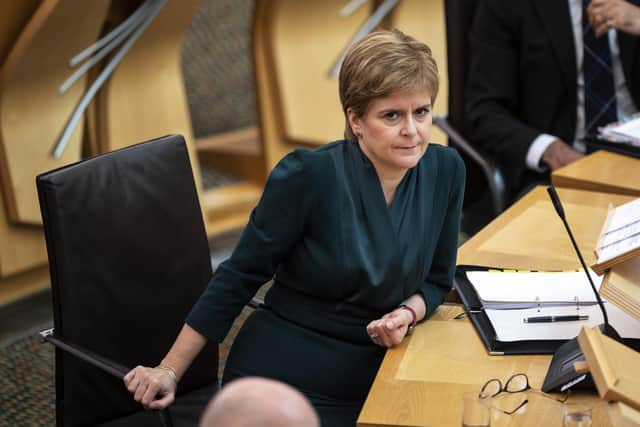Nicola Sturgeon ruled SNP in quasi-dictatorial manner and her resignation leaves Scottish independence movement adrift – Stuart Crawford
Far from it being a shock, as some commentators have been saying, it has been debated both privately and publically for some time. Now it has come to pass. The only thing that has surprised me is that she held out for so long; it has been clear for some time that her star has been on the wane.
Over the eight years of her tenure in post, she has ruled her party, the SNP, in conjunction with her husband who is its chief executive, in a quasi-dictatorial manner where dissent and debate have been discouraged and political control centralised. Famously, or infamously if you prefer, elected party representatives were forced to sign a pledge not to criticise the party, leadership, or fellow members in public. The end result was a cowed but loyal following in Holyrood where her backbenchers have been likened to “clapping seals”.
Advertisement
Hide AdAdvertisement
Hide AdOver time, however, this has led to increasing dissatisfaction with her leadership, both within the SNP and the broader independence movement. What finally seems to have brought her down is a combination of factors. These include an inability to secure a second independence referendum, much to the disgust and disappointment of many of her foot-soldiers, allegations of financial mismanagement in her party and the associated ongoing police investigations, plus a palace coup at Westminster which saw ultra-loyalist Ian Blackford being replaced as SNP group leader by the not-so-loyal Stephen Flynn.
But the straw that broke the camel’s back was probably her ill-thought-out espousing of her government's Gender Recognition Reform Bill. She appeared to ignore the genuine fears held by many people who saw this as a threat to the safety of women and girls, and instead supported the views of the very small but vocal group of transgender warriors in her circle of friends and advisers.
The Bill was, of course, blocked by Westminster, in a blow to her prestige. And her inability to answer incessant questioning on whether double rapist Adam Graham/Isla Bryson was a man or a woman made her look foolish and unsure of her ground.
Broadcaster James Naughtie was taken to task on social media for saying that he thought she looked tired, but the truth is that she does. I think that, in the end, the job has lost its sparkle and it is time for her to go. Eight years is a long, hard shift.
In her political life, she has been highly successful, attaining the highest political post in Scotland and carrying out the role of First Minister in the main with considerable ability and some aplomb. But in terms of her and her party's raison d'etre, delivering an independent Scotland, she has failed.


Scotland is no nearer becoming independent than it was eight years ago when she took over as First Minister. She will leave the SNP and wider Scottish independence movement adrift at sea, with no apparent credible leadership or pathway forward to their goal.
Stuart Crawford is a political commentator and a former SNP junior defence spokesman
Comments
Want to join the conversation? Please or to comment on this article.